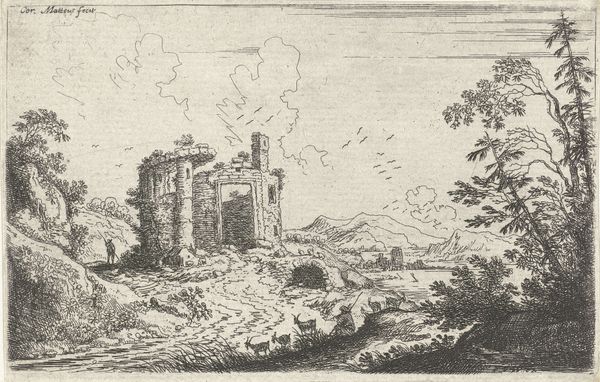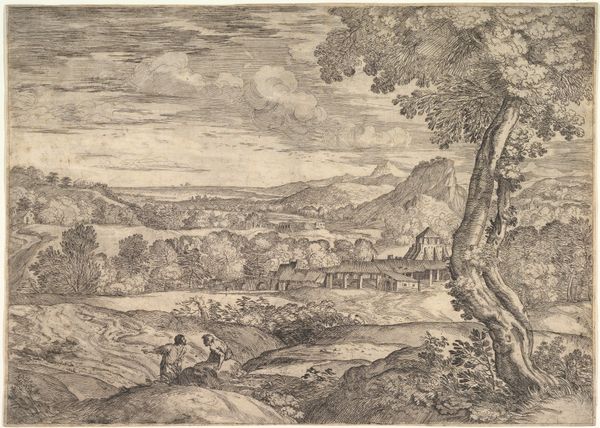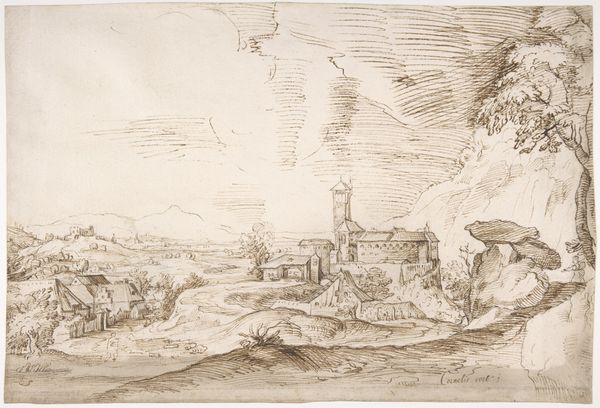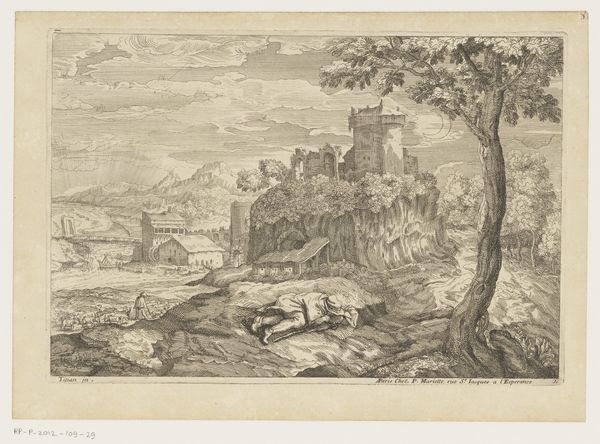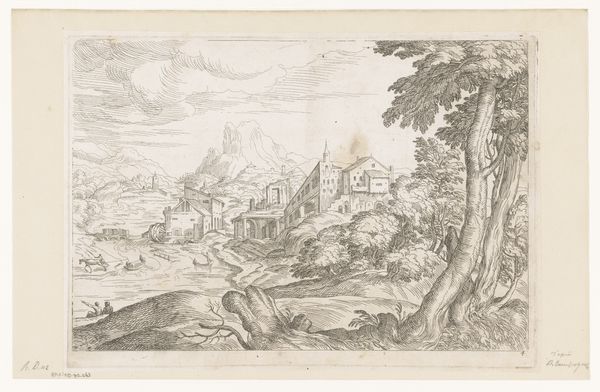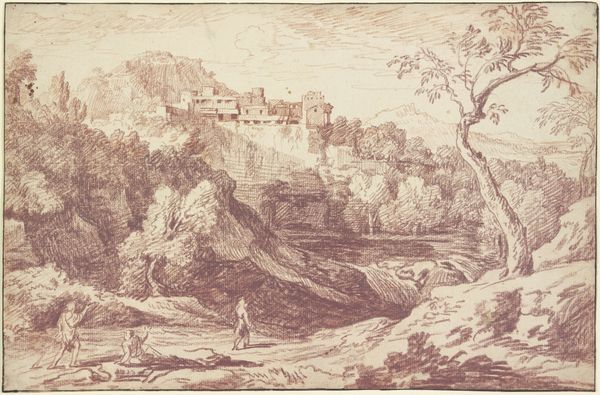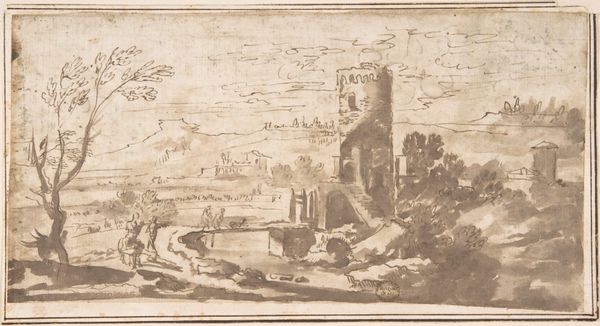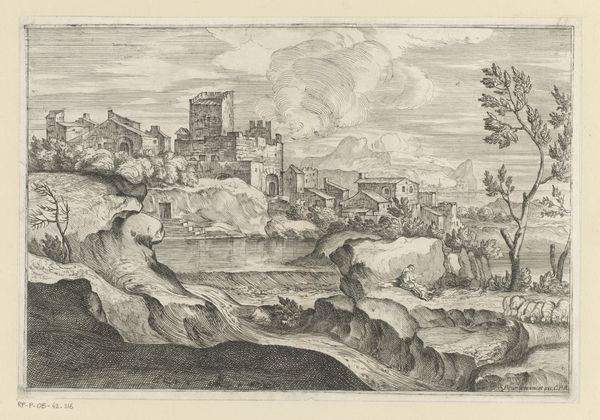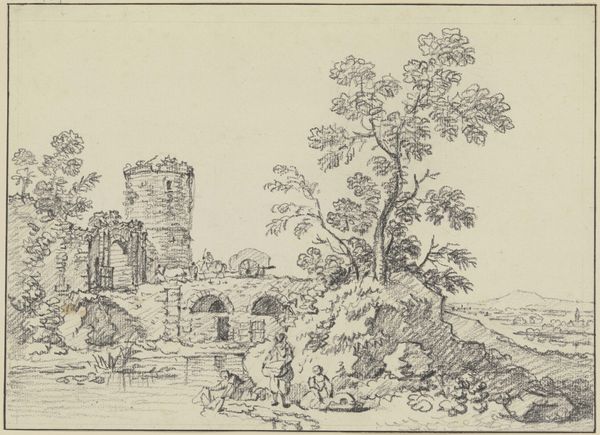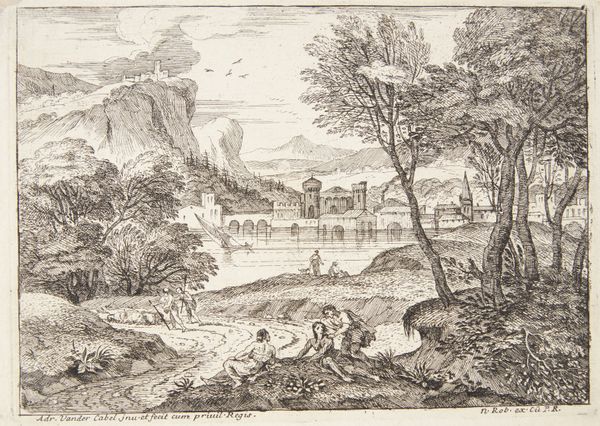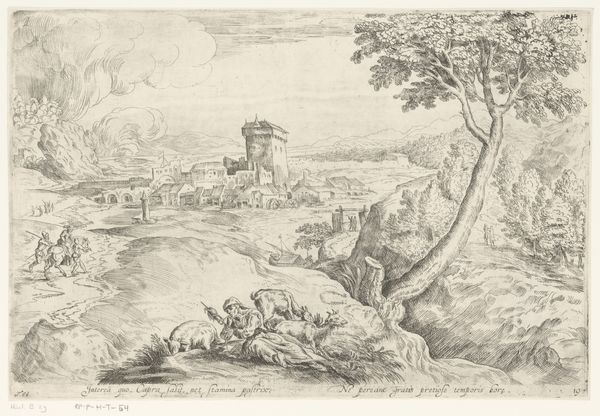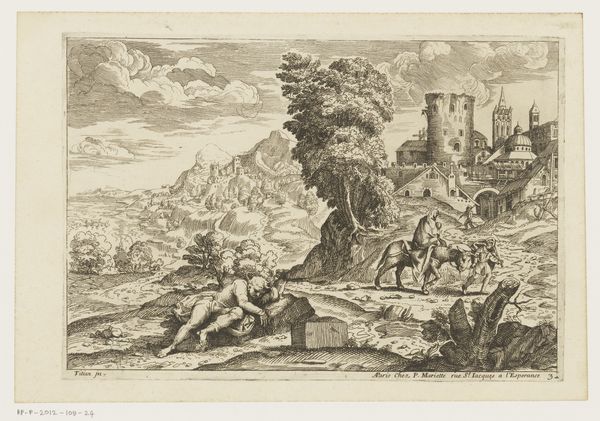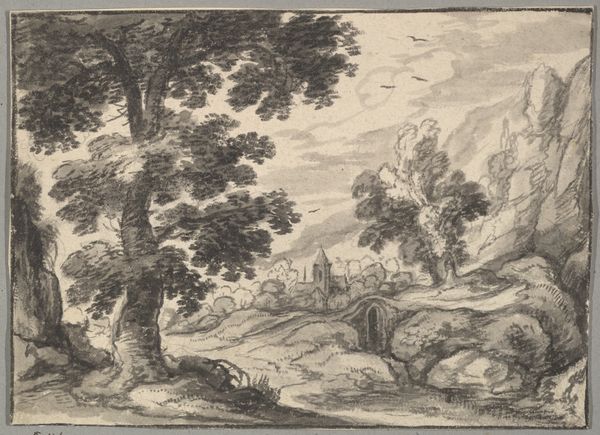
Bewaldete Feldlandschaft mit einer Kirchen- oder Burgruine und Bergkette im Hintergrund
0:00
0:00
drawing, etching, ink
#
drawing
#
ink drawing
#
medieval
#
etching
#
landscape
#
etching
#
ink
#
romanticism
#
history-painting
Copyright: Public Domain
Franz Kobell sketched this wooded field landscape with ink, featuring a church or castle ruin against a backdrop of mountains. Dominating the scene, the ruin symbolizes the transience of human achievement and the power of time, much like classical memento mori. We see this motif echoing through the ages, from the romantic ruins in Caspar David Friedrich's paintings to the crumbling empires depicted in Edward Gibbon's historical texts. The ruin is not just a pile of stones; it's a vessel of cultural memory, a marker of past glory and present decay. The presence of figures in the foreground invites contemplation on our place within this cycle, evoking a sense of melancholy. The decay of human structures in contrast with the eternity of nature reminds us of the fleeting nature of existence. The ruin, therefore, is more than a visual element; it is a psychoanalytic trigger that engages our deepest fears and hopes about time, legacy, and the human condition.
Comments
No comments
Be the first to comment and join the conversation on the ultimate creative platform.
